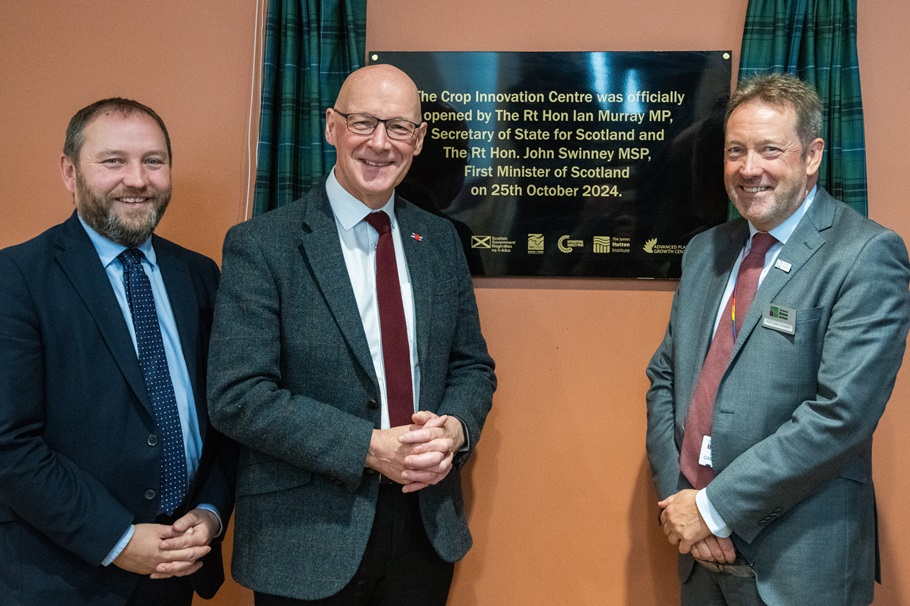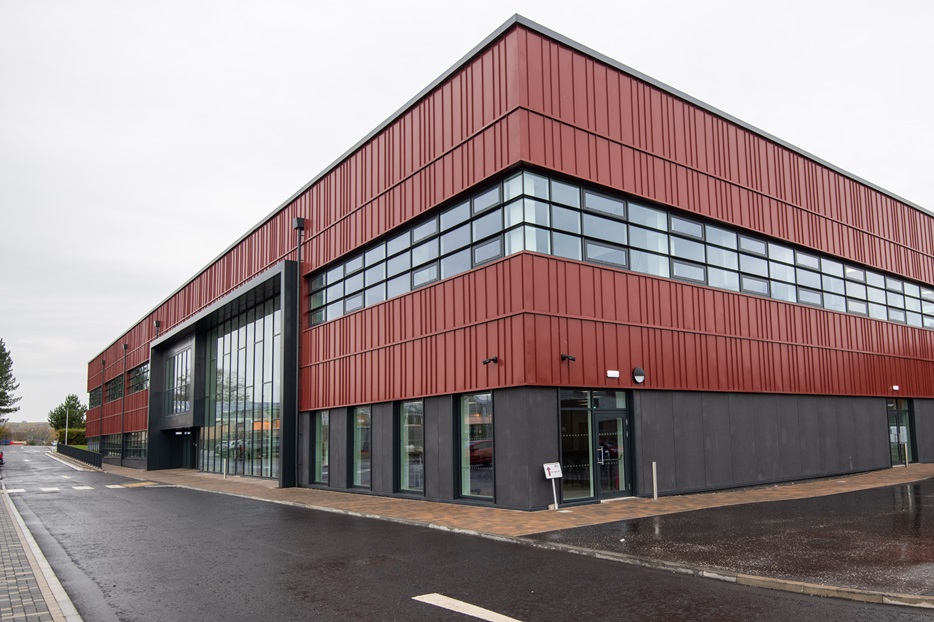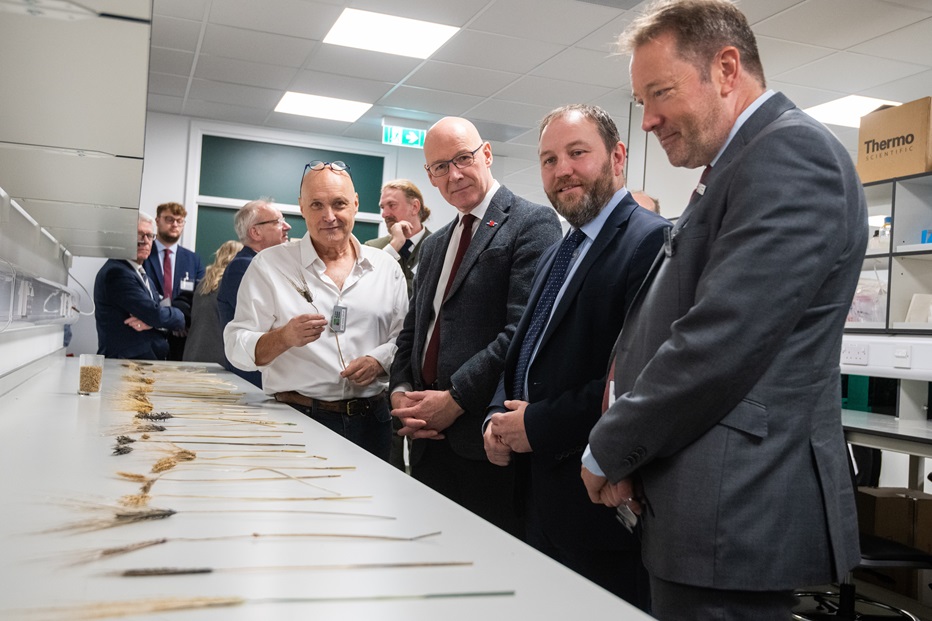New Crop Innovation Centre officially opened by Secretary of State for Scotland and First Minister

(from left) Secretary of State, Ian Murray MP; First Minister John Sweeney MSP & Professor Colin Campbell
The UK Secretary of State for Scotland, Ian Murray MP, and First Minister of Scotland, John Swinney MSP, officially opened the Crop Innovation Centre (CIC) at the James Hutton Institute in Invergowrie last week.
Delivered by McLaughlin & Harvey and Oberlanders Architects, the CIC is home to the Advanced Plant Growth Centre (APGC) and the International Barley Hub (IBH), which were created in partnership with the University of Dundee Plants Sciences Division.
Both innovation centres were funded as part of a £62 million investment through the Tay Cities Region Deal (TCRD) by the UK and Scottish Governments, which also facilitated the construction of the Mylnefield Farm building and the IBH Field Centre on the James Hutton Institute’s Invergowrie campus.
The IBH and APGC are steel-framed buildings clad with vieo/equitone panels to provide the strength and resilience required to facilitate the high-tech research equipment inside. They have also been topped with a single-ply membrane roof, offering superior waterproofing and thermal insulation to maintain stable internal temperatures.
Construction of the new building posed unique challenges due to its location within the active campus. McLaughlin & Harvey worked closely with The Hutton’s project management team, focusing on logistical planning to ensure minimal disruption to staff. Modern vacuum techniques were used to safeguard existing infrastructure and ensure that there was no disruption to The Hutton’s operations.

The Crop Innovation Centre was unveiled at The James Hutton Institute, Invergowrie
The IBH is fully equipped with a new auditorium, a boardroom, advanced laboratories, meeting rooms, open-plan offices and a cafe with a seated area on the ground floor, connected by a spacious Level 1 atrium.
Built to deliver innovative solutions for food and environmental sustainability, the APGC has been outfitted with an active travel area, a pathogen laboratory, state-of-the-art growth cabinet facilities and a phenotyping centre.
Alasdair Cox, director of operations at the James Hutton Institute, said: “We worked closely with partners at McLaughlin & Harvey and Oberlanders Architects to ensure the successful delivery of this new facility.
“The strength, resilience and sustainable design of the building are key to supporting the groundbreaking research housed within, and we are proud to have worked with a dedicated team to bring this project to life.”
Robbie Clark, operations director at McLaughlin & Harvey, said: “As an established delivery partner of the SCAPE Scotland Framework, we are delighted to have successfully completed another significant research facility for the Hutton.
“The success of this project was founded not only on the commitment and collaboration demonstrated by our project team, but also on the proactive involvement of the client and our supply chain. There was a genuine “one team” approach to the delivery of the project which was evident from the outset, and this resulted in an excellent new building with first-class research facilities that everyone involved can be extremely proud of.”

(from eft) Professor Robbie Waugh, John Sweeney MSP, Ian Murray MP and Professor Colin Campbell
The 8000 sq mt building will be powered by a high-performance data “computer farm”, which is one of the largest in the UK.
Scottish Secretary Ian Murray said: “It was a real pleasure to open the James Hutton Institute’s new Crop Innovation Centre alongside the First Minister. Home to the Advanced Plant Growth Centre and the International Barley Hub, the UK Government is investing £45m in the Centre through the Tay Cities Region Deal.
“These projects at the world-renowned James Hutton Institute demonstrate Scotland’s cutting-edge research and innovation in practice. The International Barley Hub will deliver world leading research for a crop which is vital to our whisky, beer and food sectors. The Advanced Plant Growth Centre will revolutionise crop production to address critical food security issues.
“Both projects will be key to our future food security, and to ensuring a thriving future for rural communities everywhere.”
The Centre is focused on futureproofing crop production, enhancing food and drink security for the UK. Over the next 10 years, it is projected to contribute to over 900 collaborative industry projects supporting an additional 2,600 jobs in the UK, of which 1,760 will be in Scotland and 470 in Tayside. It has been estimated that it will contribute over £900m GVA to the UK economy, over half of which will be in Scotland.













